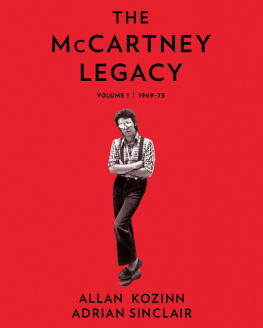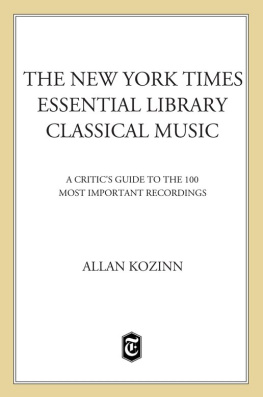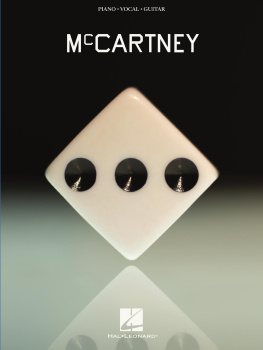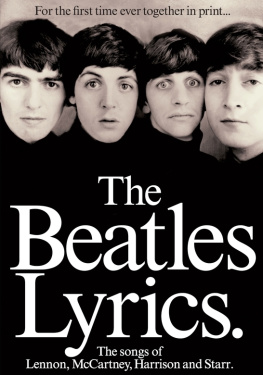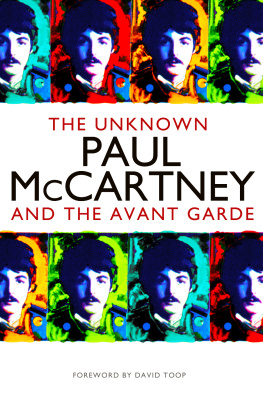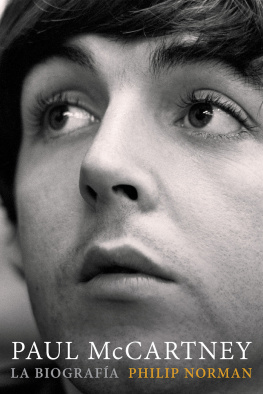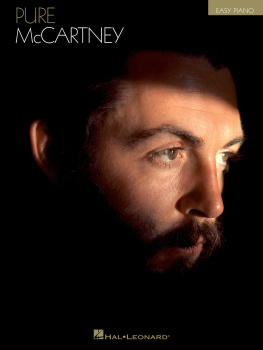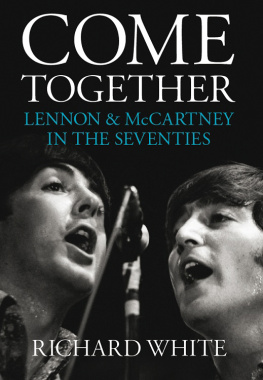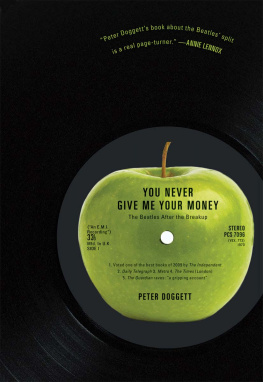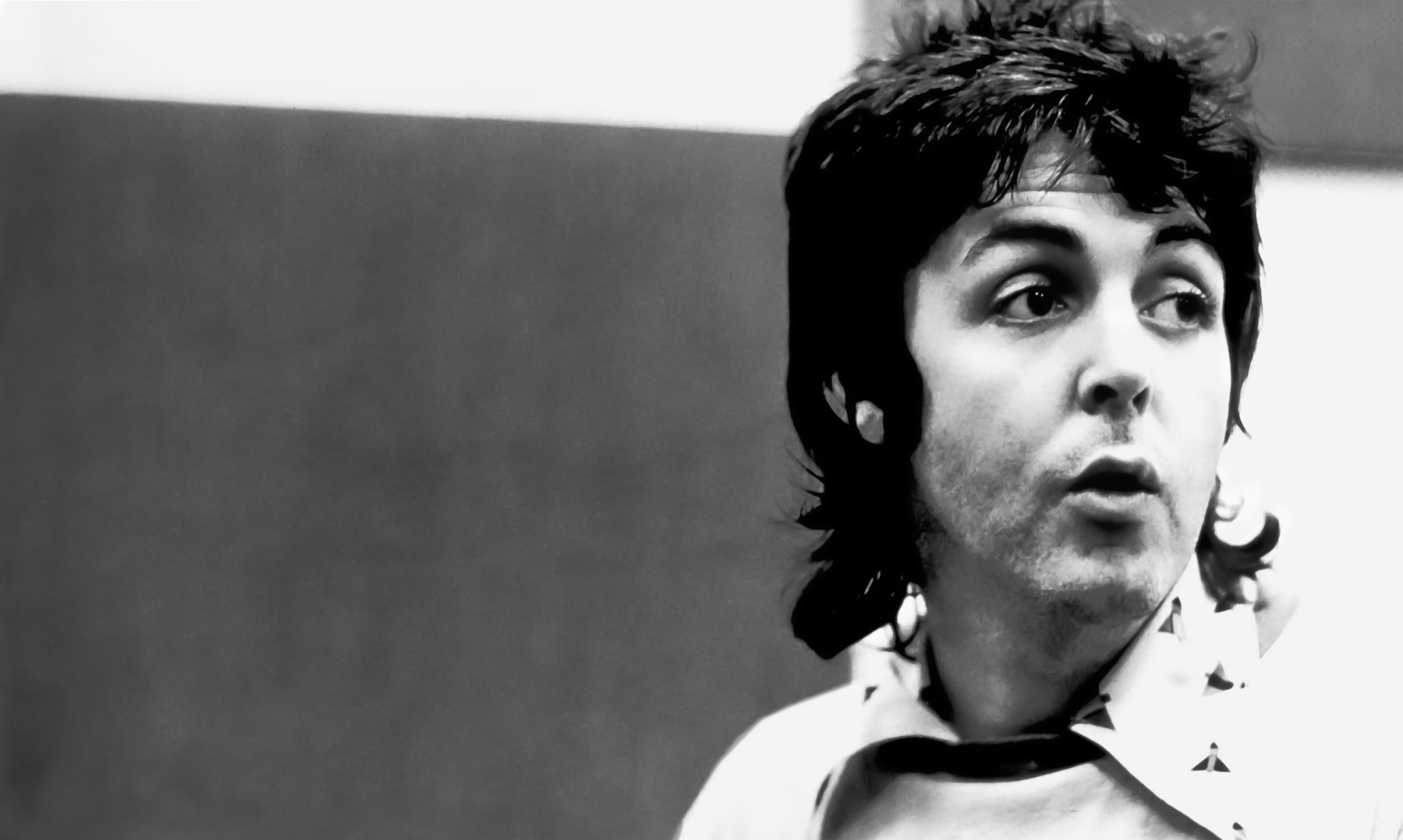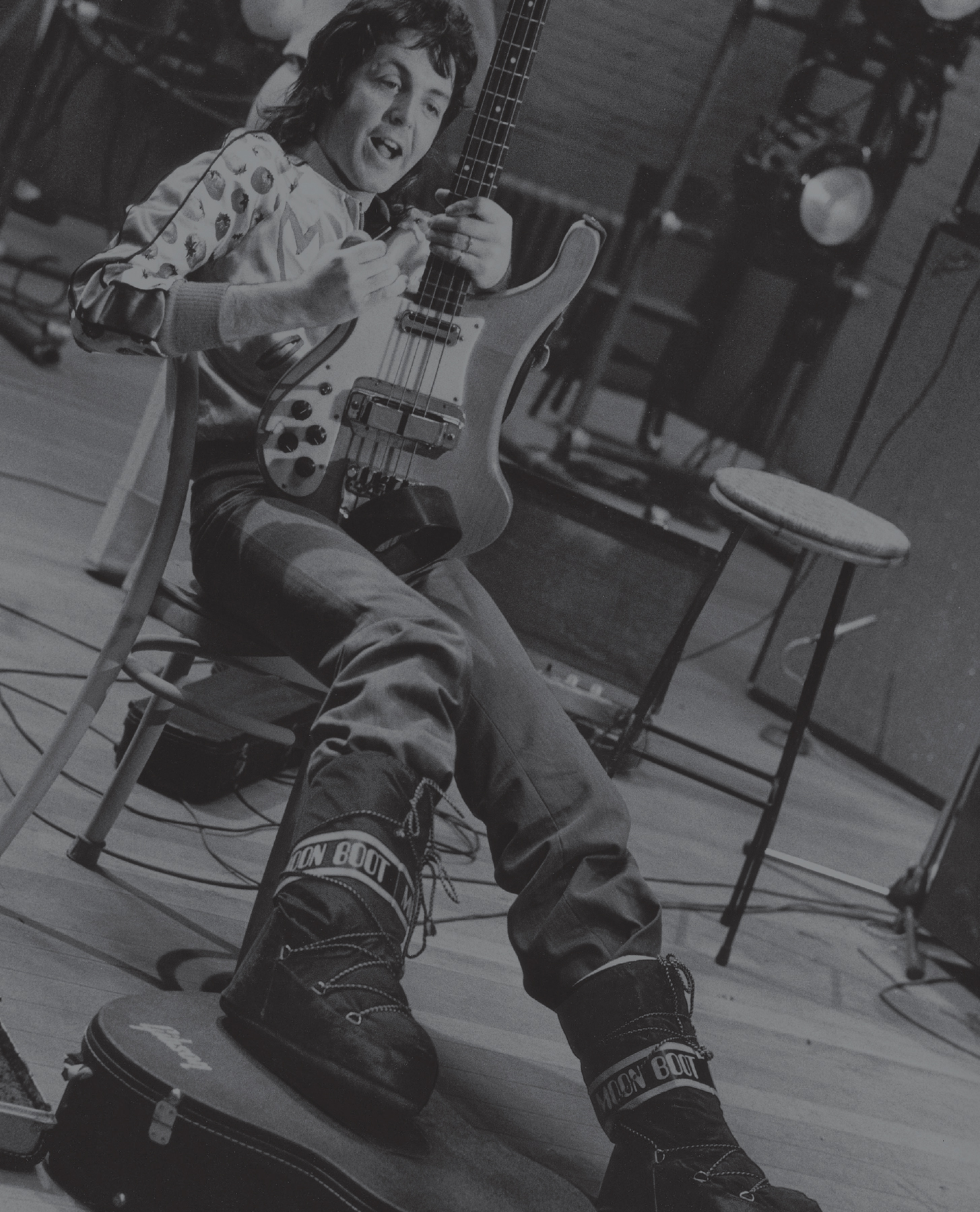
Pictorial Press/Alamy Stock Photo
IM VERY GOOD AT FORGETTING WHO I AM, BECAUSE AS FAR AS IM CONCERNED PAUL McCARTNEY IS A NAME I WAS GIVEN AT BIRTH AND AT THE BEGINNING OF THE BEATLES HE SPLIT OFF INTO A CELEBRITY, AND I REMAINED AS [ME]. IVE GOT A VERY SCHIZO THING WITH THAT. WHEN HE GOES ONSTAGE HES AN ENTERTAINER. PEOPLE WHO ARE VERY BIG ONSTAGE ARE QUITE SHY IN THEIR PRIVATE LIVES. THAT DOESNT COMPUTE; THEY SHOULD BE BIG IN THEIR PRIVATE LIVES. BUT THERES A CUTOFF. SO, WHEN YOU TALK ABOUT PAUL McCARTNEY, I TALK ABOUT THE GUY INSIDE ME, BUT YOURE TALKING ABOUT HIMTHE GUY WHO GOES ONSTAGE, AND MAKES RECORDS, AND STUFF. AND I THINK ITS JUST A WAY OF PRESERVING MY SANITY REALLY, IS THINKING, IM NOT REALLY THAT, IM JUST SOME LITTLE KID FROM LIVERPOOL REALLY. I DIDNT DO ALL THAT STUFF. ITS A DREAM REALLY AND ITS GONNA STOP SOON.
ALLAN KOZINN
T here is something to be said for sitting in a room with Paul McCartney and watching him in action, up close, during an interview, an experience my years at the New York Times opened up for me on several occasions. And experience is the word: I probably conducted upward of 3,000 interviews during my 38 years at the Times, and though many interviewees are quite polished, no one comes close to McCartney in his ability to take control of the room. Thats not to say that he hijacks your questionsif he finds those you ask engaging, he can be gratifyingly frank, although you have to be careful to avoid lines of inquiry that allow him to lapse into the many set pieces he has developed through decades of hearing the same questions over and over.
But the most striking thing about interviewing McCartney is his uncanny ability to make you feel as though youre old pals, and that there is nothing hed rather be doing than answering your questions. As a journalist, you know that this isntcannot betrue, but there is no denying that there is something seductive about having what feels like a friendly chatwith jokes, asides, bits of gossip and clarifications of long-standing mysterieswith someone whose work youve admired all your life.
He also has a surprising memory for faces, given the huge number of people he encounters. In the fall of 1991, a year after my first one-on-one interview with him, he returned to New York for a press conference at Weill Recital Hall, to announce that his first classical work, Paul McCartneys Liverpool Oratorio, would have its American premiere at Carnegie Hall. As I left the hall when the press conference ended, one of Carnegie Halls publicists stopped me to say that Paul had spotted me in the audience and wanted to speak with me about the review I had written after hearing the Oratorios world premiere, in Liverpool. I had enjoyed the work: its movements were, at heart, extended song forms, and if theres one thing McCartney handles better than most, its the song form.
I was ushered backstage where Paul, with his wife, Linda, standing beside him, said, I read your review of the Oratorio, and I just wanted to thank you for giving it a chance. He added that Lindas father, Lee Eastman, had read the review to him over the phone the morning after the performance and had been pleased that the work got a positive notice in the Times. And you know, he added, he died soon after that, so you did a good thing.
That is one side of Paul McCartney. The musicians and producers he works with see other sides of him, as do family members, colleagues, and functionaries at various levels.
He has, at times, spoken publicly about there really being two manifestations of himself, who he refers to as Him and MeHim being the public Paul McCartney, the one you see onstage, on film and television, and in interviews, and Me being the private, real Paul McCartney, the man his family and closest friends know, and who does not need to project the unflaggingly cheerful, thumbs-up image that is central to being Him.
We all have public and private selves, of course. But at the level of fame Paul McCartney inhabits, with millions of people constantly peering into the fishbowl, the distinction is more acute, by levels of magnitude. It is also exacerbated by his being a Gemini, and whatever one believes about the characteristics astrologers ascribe to those born under particular signsGeminis are known for their dualityhe has mentioned it in interviews (often jokingly), and Linda mentioned it as well.
In Him mode, McCartney is a consummate performer, charming and eager to please, but he is presenting an image that may have a shifting connection to reality. Him, in other words, can proclaim publicly that he does not read newspapers (particularly reviews); Me reads them voraciously. Him can repeat, with a measure of wonder, a favorite anecdote of George Martins, in which the producers of Live and Let Die thought the fully produced (by Martin) Wings recording of the title song was just a demo, and that wondered what female singer they should get to sing it in the film; Me was familiar with the details of his contract and knew that there was never any doubt that the Wings version would be used. So why did Him repeat the tale? It makes a great story, and since listeners are almost guaranteed not to have seen the contract, no one is likely to challenge it.
So is Him a liar? We dont see it that way. Him is a performer, and his performances are not only those he gives with an instrument in hand, but rather, the entire persona wrapped around the musician. His public statements, in other words, are part of the vast performance piece that is the Public Paul McCartney. Most of it is objectively true and can be taken at face value. But if it suits him to spin a story to make it more entertaining, or because a tweaked version makes a point he wants to get across, or merely to sweep away an embarrassing detailwell, thats just part of the construct.
Me is more complex, more natural. If hes angry, or just in a bad mood, Me will unload on you with little mercy, as fans hounding him for autographs or photos have sometimes found. It is McCartneys Me side, too, that pushes insistently for what he wants and how he wants it, whether musically or in his private life.
This duality comes through these pages, not because weve stressed itwe have notbut because different situations naturally demand different responses, and we have done our best to tell the story as it happened, neither idealizing it nor going out of our way to find a dark side within it.
But why, you may ask, have we opted to start our story in 1969 when James Paul McCartney was born in Liverpool on June 18, 1942?

